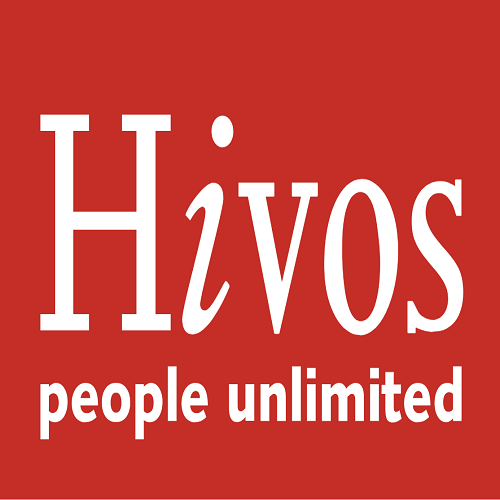Comprehensive Mapping of Urban Agriculture in Tunis “AfriFOODlinks” Project- HIVOS MENA Retour vers les opportunités
Échéance
15 Février 2025 Il y a 1 an
Critères d'éligibilité
Cliquez ici pour parcourir les critères d'éligibilitéPartager l'opportunité sur
Détails de l'opportunité
Domaines concernées par cette opportunité: Agriculture et 2 autre(s) domaines
TERMS OF REFERENCE
Comprehensive Mapping of Urban Agriculture in Tunis
Duration: 8 months
Location: Tunis, Tunisia
1. Context :
AfriFOODlinks, Transforming Africa’s Urban Food Environments through Strengthening Linkages between Food Systems Stakeholders in Cities across the Continent and Europe AfriFOODlinks aims to address the systemic underpinnings of food insecurity and environmental impact, to lead to real transformation. AfriFOODlinks views urban food environments as the key arena for improving nutrition and reducing environmental impact in African cities. This is because food environments are where residents make the choices about the food they eat and it is where the food security priorities of food availability, access, agency, utilization and stability manifest.
AfriFOODlinks proposes to influence three key drivers of food environment form, function and dynamics. These are Infrastructure Investment, Social and Cultural Preference &Business Innovation.
Urban and peri-urban agriculture (UPA) plays a significant role in shaping the urban food system. It contributes to food security, environmental sustainability, and economic resilience by creating local food production opportunities, reducing dependency on imports, and optimizing land use. However, UPA in Tunis remains largely undocumented, with limited systematic research on existing initiatives, their governance models, and the challenges they face.
To bridge this knowledge gap, this mission aims to conduct a comprehensive mapping of urban agriculture in Tunis. By identifying existing practices and initiatives, analyzing governance structures, assessing challenges and opportunities, and generating an evidence base, this research will inform future interventions, guide policy development, and strengthen the integration of UPA into urban food strategies.
2. Objectives :
To systematically identify and document urban and peri-urban agriculture (UPA) initiatives in Tunis, analyzing their governance models, strengths, and challenges to provide a robust evidence base for decision-making.
1. Identify and document UPA initiatives across Tunis, mapping their locations, types, and key stakeholders.
2. Analyze governance models, assessing how these initiatives are managed, regulated, and sustained.
3. Evaluate challenges and strengths, identifying critical gaps and opportunities for scaling UPA.
4. Develop data-driven frameworks that can support future policy interventions and stakeholder engagement.
3. Scope of Work :
This mission will consist on four key steps over an eight-month period:
Step 1: Preparation
-Stakeholder Engagement: Identify and engage key actors, including municipal authorities, urban farmers, local communities, and agricultural experts. Establish communication channels and collaboration frameworks.
-Planning and Design: Develop a detailed methodology, data collection plan, and timeline. Secure necessary approvals and access to relevant sites.
Step 2: Data Collection
– Mapping UPA Initiatives: Conduct surveys, interviews, and field visits to systematically document UPA sites, their origins, governance structures, and operational models.
-Data Compilation: Organize collected information into a comprehensive database, ensuring data accuracy through validation processes.
Step 3: Data Analysis
– Pattern Identification: Use quantitative and qualitative methods to analyze trends, challenges, and best practices in UPA.
– Lessons Learned: Document insights from existing UPA initiatives to highlight successful models and areas for improvement.
Step 4: Framework Development
– Design of Analytical Frameworks: Develop preliminary frameworks to support the expansion and institutionalization of UPA in Tunis.
– Stakeholder Validation: Present findings to stakeholders for feedback and refinement before moving to implementation phases.
4. Expected Deliverables :
The selected experts will be responsible for producing the following deliverables:
1. Inception Report (Month 1) – Detailing methodology, stakeholder engagement plan, and work schedule.
2. Interim Data Collection Report (Month 4) – Summary of mapped UPA initiatives, governance models, and preliminary findings.
3. Draft Analytical Report (Month 6) – Comprehensive analysis of UPA trends, gaps, and opportunities.
4. Final Report & Frameworks (Month 8) – Consolidated findings with strategic recommendations and validated governance frameworks.
5. Qualifications and Expertise Required :
The mission requires a multidisciplinary team or individual consultants with expertise in:
– Urban agriculture, food systems, or sustainable urban planning.
– Mapping tools and GIS expertise, with demonstrated experience in spatial data collection and visualization.
– Research methodologies, including qualitative and quantitative data collection, surveys, and field research.
– Stakeholder engagement and participatory approaches in data collection and analysis.
Critères d'éligibilité
- The mission requires a multidisciplinary team or individual consultants with expertise in Urban agriculture, food systems, or sustainable urban planning.
- Mapping tools and GIS expertise, with demonstrated experience in spatial data collection and visualization.
- Research methodologies, including qualitative and quantitative data collection, surveys, and field research.
- Stakeholder engagement and participatory approaches in data collection and analysis.
L'opportunité a expiré
Cette opportunité n'est malheureusement plus disponible sur Jamaity. Visitez régulièrement la rubrique opportunités pour ne plus en rater.
Suivez Jamaity sur LinkedIn
Obtenez Jamaity Mobile dès maintenant

Appel à consultants Publié sur Jamaity le 3 février 2025
Découvrez encore plus d'opportunités sur Jamaity en cliquant sur ce lien.
